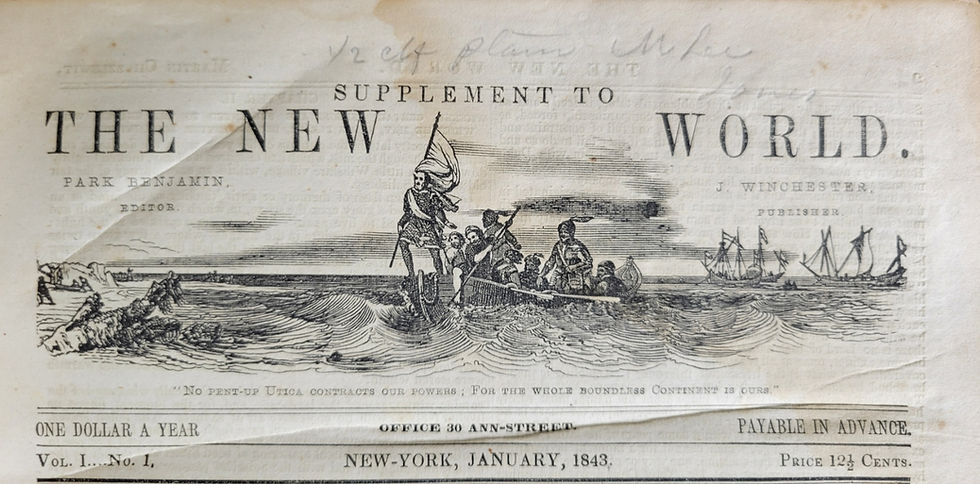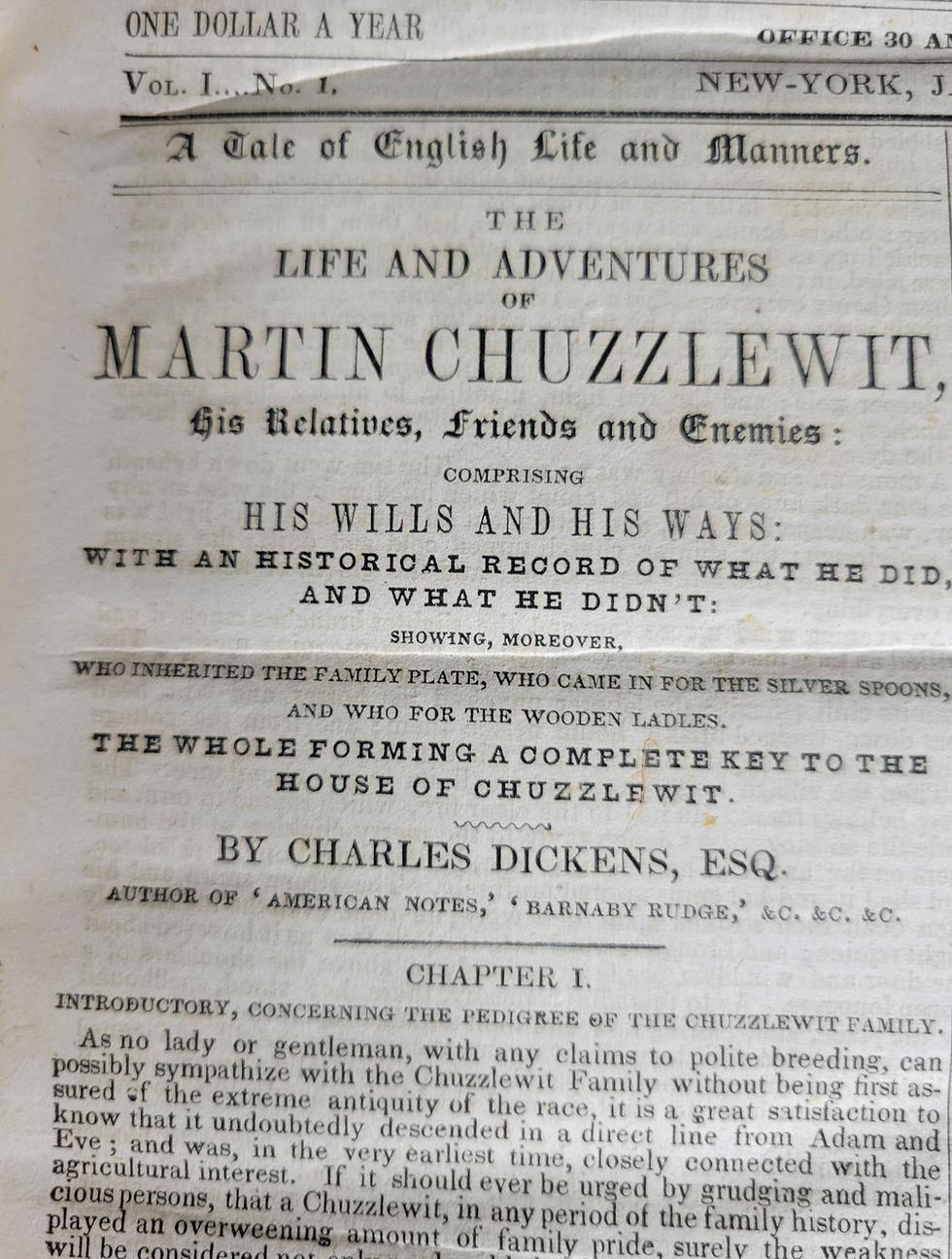🔍 The Forgotten Chuzzlewit: Dickens, Piracy, and the Ghost of J. Winchester's 1843 Edition
- rick5279
- Jul 27, 2025
- 2 min read
In the shadowy corners of American literary history lies an edition of Martin Chuzzlewit so elusive, it’s been mistaken for myth. Published in 1843 by J. Winchester’s New World Press, this first American edition didn’t arrive via fanfare—it slipped in through the back door of copyright chaos.

Issued as a serialized supplement to The New World newspaper, Winchester’s Chuzzlewit was no authorized import. It was part of the vibrant and legally murky world of 19th-century American publishing, where Charles Dickens’ fame was both a blessing and a piracy magnet.
📜 Serialized Subversion

Winchester released Martin Chuzzlewit in 19 monthly parts between 1843 and 1844. These weren’t bound volumes—they were ephemeral supplements, wrapped in newspaper culture and printed in double-column format. Early issues carried charming wood-engraved vignettes, while later installments bore stripped-down mastheads, reflecting either budget constraints or dwindling enthusiasm.
Pagination across the series is a bibliographic adventure, featuring misnumbered pages and irregular formatting. Such quirks make every surviving copy a unique artifact—and a cataloger’s conundrum.
⚔️ Dickens vs. the American Pirate Press

Dickens, ever vocal about intellectual property rights, would’ve cringed at the Winchester edition. It predated Harper & Brothers' authorized version by over a year and was swiftly buried by time. Major bibliographers skipped it, likely due to spotty records and its fragmentary nature in institutional holdings. Yet for collectors, this edition represents a thrilling intersection: literary celebrity, early American serialization, and the transatlantic tensions over copyright. It’s a vivid reminder that great literature often travels with a forged passport.
🧠 Why It Matters
The Winchester Chuzzlewit isn’t just a rarity—it’s a lens on 1840s publishing economics, American readers’ hunger for Dickens, and the challenges of literary preservation. Complete sets are like ghost sightings: infrequently reported and always contested. If you're lucky enough to handle one, you’re touching a fugitive piece of history.
Barron Rare Books was fortunate to unearth a marvel: a nearly complete serialized run of Martin Chuzzlewitt issued by The New World Press between January and December of 1843, ending with the elusive 32nd chapter. Yet the true coup is what followed—a scarce, 150-page Winchester edition tucked into the rear, containing all 54 chapters with title and preface intact. Printed without illustrations, it sold for a mere 25 cents—an audaciously democratic price point for Dickens in an American market still establishing its literary identity.
What’s more, this Winchester release beat Harper’s bound edition to press by five full days, making it not just rare, but pioneering. It captures a fleeting moment when transatlantic publishing raced to democratize literature for eager readers—and won. Today, it survives not just as a collectible, but as a testimony to ingenuity, scarcity, and the unpredictable pathways of literary history.




Comments